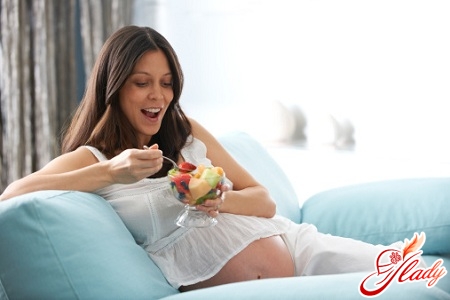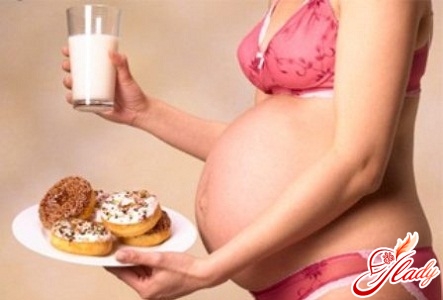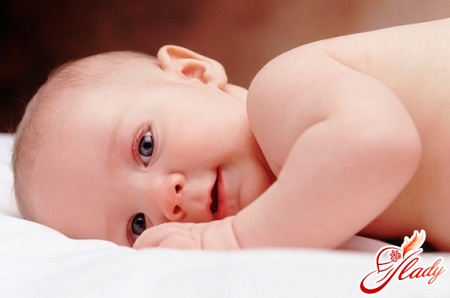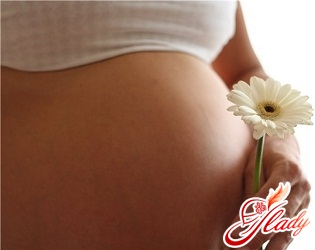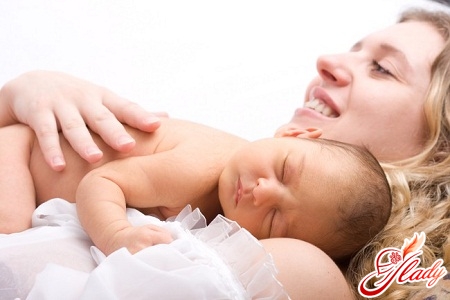 The postpartum period is a difficult time forwomen. Its duration is about eight weeks. This is neither much nor little, since the female body has worked hard during pregnancy and after childbirth it needs to recover and rest. Now the main task is hormonal changes. Pregnancy hormones are replaced by hormones that are responsible for lactation. The female body undergoes significant changes that require physical and psychological strength. As a result, in the period after childbirth, most women experience more frequent mood swings, and for some time a tense, explosive atmosphere can reign in the house of the woman in labor. Of course, this does not benefit either the mothers themselves or the relatives of the women who have given birth. Unreasonable irritability, depression of the young mother oppress those around her and negatively affect relationships with them. The baby also feels the mother's mood, and begins to worry, cry, and sleep poorly. What should a woman do after childbirth to reduce the risk of such an environment in the house to a minimum? And what hygiene should she observe?
The postpartum period is a difficult time forwomen. Its duration is about eight weeks. This is neither much nor little, since the female body has worked hard during pregnancy and after childbirth it needs to recover and rest. Now the main task is hormonal changes. Pregnancy hormones are replaced by hormones that are responsible for lactation. The female body undergoes significant changes that require physical and psychological strength. As a result, in the period after childbirth, most women experience more frequent mood swings, and for some time a tense, explosive atmosphere can reign in the house of the woman in labor. Of course, this does not benefit either the mothers themselves or the relatives of the women who have given birth. Unreasonable irritability, depression of the young mother oppress those around her and negatively affect relationships with them. The baby also feels the mother's mood, and begins to worry, cry, and sleep poorly. What should a woman do after childbirth to reduce the risk of such an environment in the house to a minimum? And what hygiene should she observe?
How to deal with increased irritability
In order to calm the nervous system,A young mother needs to rest more. Rest is very important at this time for women, as it allows them to accumulate new strength and energy for the functioning of the body, exhausted by pregnancy and childbirth. Allow yourself to be pampered and taken care of during this period. Do not be capricious and do not find fault with loved ones over trifles, because those around you also get tired at work, but at the same time they try to help you. The best rest for you and the baby will be a joint rest - enjoy each other's company, because in the first weeks of life, the baby needs the closeness of the mother. And if dad joins you, the baby will be completely delighted. Childbirth and the period after it are stressful for women. Rest. Wear loose and soft clothes. Invite an assistant or a housekeeper. This can be either a stranger working for a certain amount of money, or one of your relatives. When you are going to rest, turn off the phone or turn on the answering machine. Tune in only to a positive wave. If you have any fears and doubts, you can share them with your family and friends. It would be good to talk to girlfriends who also gave birth and know what the postpartum period is like. Pamper yourself, pay more attention to yourself. Get a manicure, a new hairstyle, buy some clothes. Take warm relaxing baths with all sorts of additives. Go shopping, this joy of all women; go to the cinema, read a good book and listen to calm music. This will help you relax. Use maternity leave not only to take care of the baby, but also to fully recover from the pain, contractions, after childbirth. Gymnastics, attending dance classes, some clubs relieve nervous tension after childbirth. Act, move, do not let depression take hold of you. And do not forget about postpartum hygiene.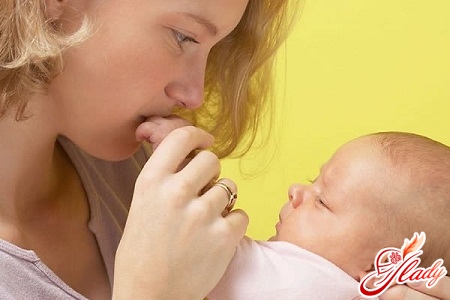
Postpartum Hygiene
With a woman's body after shegave birth, various metamorphoses occur. After childbirth, her uterus returns to its previous size, which occurs due to postpartum contractions. You will even feel the contraction of the uterus during breastfeeding. When the baby sucks milk, hormones are released in the woman's body, due to which the uterus returns to its previous size, from one kilogram to 50 grams. Hygiene of the postpartum period consists in the fact that it is better to use pads to absorb discharge from the uterus and in no case - tampons. The rejection of the mucous membrane from the uterus will end six to eight weeks after childbirth; although after three to four weeks they will already be quite scanty, and you can switch to daily pads. Also, the period after the birth of the baby for women is marked by the disappearance of fluid that has accumulated in the legs and joints during pregnancy. If in the first week after childbirth you wake up in a sweat - do not worry, it will soon pass. There is no need to worry about the size of your belly, which in the first weeks will look like it is four months pregnant. Breastfeeding and exercise will fix the situation. But do not forget that exercises at this time are significantly different from regular abdominal exercises. Start with exercises for the oblique abdominal muscles. Childbirth and the postpartum period can cause you depression and disgust with your own body, but this is not a reason to go on a diet and start rapidly losing weight. First of all, think about your baby and his nutrition, and the best nutrition for a baby is breast milk, the quality and quantity of which depends only on you. Therefore, continue to ensure that your diet is balanced.
Nutrition after childbirth
During lactation, nursing women should havethe amount of water consumed is increased – about a liter more than usual, so that in total it is necessary to drink from two and a half to three liters per day. Women, as a rule, themselves feel an increased need for water; they feel especially thirsty during the process of feeding the child or immediately after it – because the body needs liquid to form a new portion of milk. But do not overdo it: too much liquid can even reduce lactation. It is necessary to reconsider the diet of nursing women. The daily calorie intake should be increased to two and a half thousand; and even to two thousand eight hundred calories if you plan to continue breastfeeding as long as possible. But again, be careful: many nursing women tend to consume a lot of sweets. Stick to a healthy diet! Sweets will do nothing but harm to the child. And there will be no benefit for you in this - after all, most women gain weight during this period not because they should eat more, but because they abuse sweets. Distribute calories evenly over five meals: breakfast, lunch, afternoon snack, dinner and an additional snack in the evening. For an afternoon snack and snack, you can eat low-fat dairy products, fruits, drink juices and water. Breastfeeding women produce milk constantly, so it is important that you constantly and evenly supply your body with the necessary calories. Stay as far away from tobacco as possible. Nicotine enters the baby's body through breast milk, which can lead to serious consequences. It is also important to remember that not all foods are suitable for a woman's diet during this period. The diet of a nursing mother should not include allergenic foods and foods containing substances that increase fermentation processes in the intestines. These are onions, garlic, marinades, pickles, smoked meats, grapes, confectionery, crabs, shrimp, chocolate, foods with a lot of sugar. You should avoid eating the meat of young animals and birds, as they are highly allergenic. Eggs, citrus fruits, tomatoes and strawberries are also allergens. Take vitamins and minerals. Raspberry leaf tea will help your intestines at this time – it cleanses.
Sex after childbirth
If there are no complications, have sexit is possible already approximately six weeks after childbirth. If there are complications, you will have to wait a little. Women's sensuality usually increases significantly during this period. She becomes quite passionate and wants sex more than before. This is good. But you should not forget about contraception. Breastfeeding is not yet a complete guarantee that a second pregnancy will not occur. Therefore, it is better not to relax, otherwise there may be a chance of repeated labor troubles. Often, women experience vaginal dryness after childbirth. In this case, use lubricants. They, as well as ointments, will also help if pain occurs during intercourse. Sex during this period should be gentle and unhurried. Even if intimacy does not happen every day, it is necessary because it calms the nervous system and regulates hormonal levels. And this has a beneficial effect on both women and their babies. We recommend reading:





